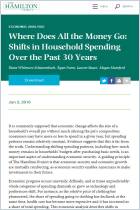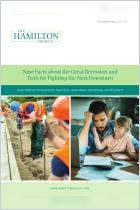Join getAbstract to access the summary!

Join getAbstract to access the summary!
Diane Whitmore Schanzenbach, Ryan Nunn and Greg Nantz
If You Build It
A Guide to the Economics of Infrastructure Investment
The Hamilton Project, 2017
What's inside?
US infrastructure investments require impartial prioritization and financial control.
Recommendation
The need for infrastructure improvements in the United States, where investment has been falling for decades, has never been greater. According to a 2013 report from the American Society of Civil Engineers, it would take an estimated $3.6 trillion to bring America’s transportation, utilities and flood-control structures back to acceptable levels of safety and reliability. This astute report from policy experts Diane Whitmore Schanzenbach, Ryan Nunn and Greg Nantz offers a systematic approach to prioritizing, selecting and funding projects. The authors emphasize the importance of financial responsibility and impartial decision making in tackling this enormous undertaking. getAbstract recommends this timely study to officials charged with the oversight of infrastructure spending.
Summary
About the Authors
Diane Whitmore Schanzenbach is the director of the Hamilton Project at the Brookings Institution, where Ryan Nunn is a policy director and Greg Nantz is a research analyst.

























Comment on this summary